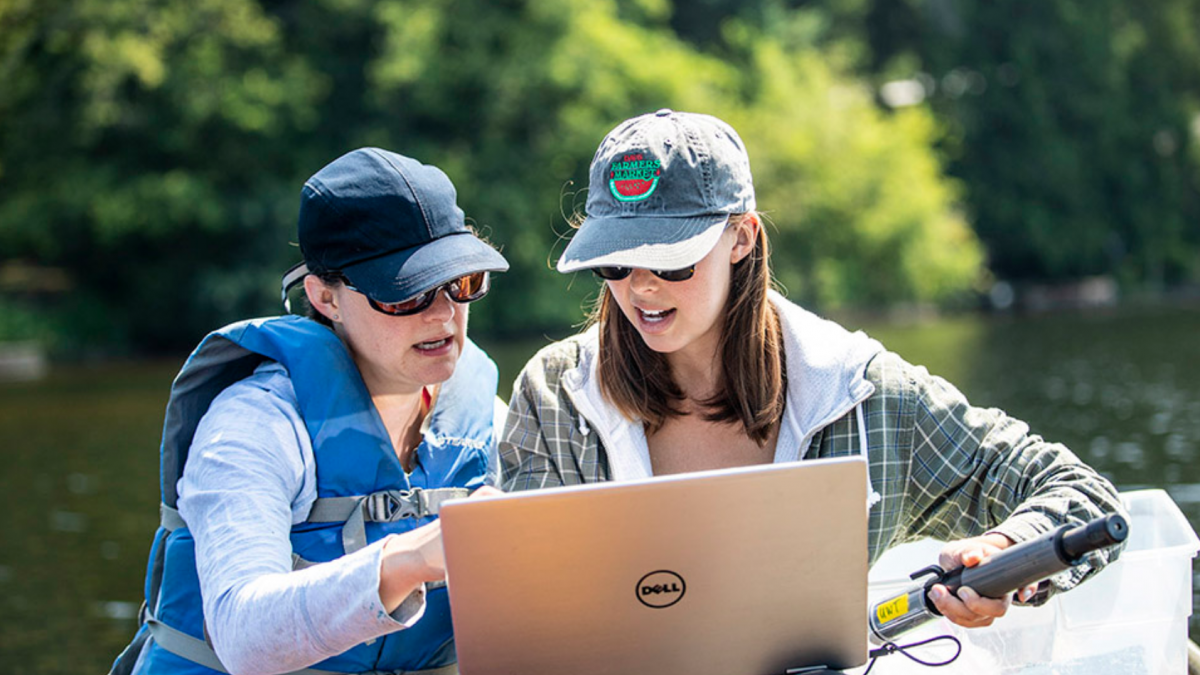
Dr. Rebecca Neuman (left) co-authored eight posters and talks for the 2019 fall meeting of the American Geophysical Union
At the 2019 fall meeting of the American Geophysical Union, Dr. Rebecca Neuman was a co-author on seven posters and talks on topics ranging from the effect of climate change on food quality to the degradation of south-central Alaska's permafrost plateau. She herself gave a talk on research from UW SRP project 4 showing that shallow lakes are uniquely vulnerable to contamination from arsenic. The title of her talk was "Legacy arsenic contamination in urban lakes: the unique vulnerability of shallow weakly stratified lakes." Co-authors included UW SRP co-principal investigator, Dr. James Gawel, and UW SRP trainee, Samantha Fung. She also chaired a session titled "Understanding the Interactions Between Hydrological and Biogeochemical Dynamics in Permafrost Environments with Observations and Models." The meeting was held December 9-13 in San Francisco, CA and is the largest international Earth and space science meeting in the world.
A full list of the presentations that Neumann co-authored is available here. Titles include:
Beyond the “lollipop” – roots as dynamic participants in root-microbe-mineral interactions
Between States: The Microbial Ecology of Biogeochemical Processes Near the Freezing Point
Thaw dynamics of a rapidly degrading isolated permafrost plateau in south-central Alaska
Where’s the Paddy Now? Examining the Effect of Dams in Dry Season Rice Production in Tonle Sap Lake

